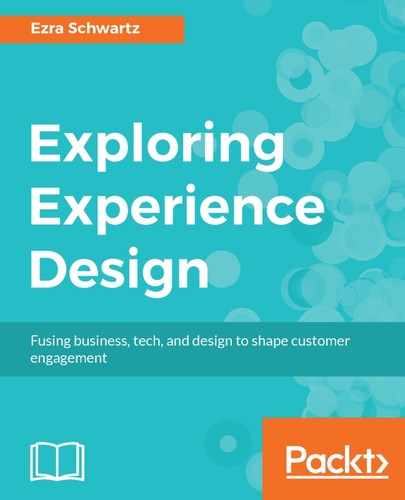I’ve been in the field of user design, experience and research for over 35 years and have seen a lot of growth in the industry. The field has grown from usability validation late in the design cycle to becoming a collaborative partner in identifying user needs and a design direction. User experience research has become a differentiating factor and an influencer. Companies request user research in their proposal requests, and look for user research to support design and development. We continue to expand our involvement earlier in the design lifecycle, focusing on knowing the user and their needs before the design solution has been conceived. Technology is evolving very rapidly.
The emergence of virtual assistants and chatbots, natural language processing, artificial intelligence technologies that integrate cognitive computing, natural language processing, voice recognition, business analytics, and sentiment analysis provide a glimpse of what’s ahead. User research will play a large role in the emergence and adoption of these technologies. User research will play a large role in the emergence and adoption of these technologies.
There are multiple paths to entry to user experience research. Researchers come from backgrounds in web design, ethnography, cognitive psychology, engineering psychology, Information Technology (IT), and anthropological research. An understanding of the principles of human behavior and the scientific method, the ability to adopt and adapt varied methodologies, being able to communicate well, and applying data collection and analytic methods to results are key to success. Being a forward thinker, well organized, willing to seek out challenges, being inquisitive, and demonstrating innovation doesn’t hurt.
User researchers have to understand behavior and methodologies to study, describe and measure it. You have to listen to, and communicate with, people – not role play the part of a user. You need to focus on evidence-based research – not your experiences. You need to be a trusted partner. You need to handle and consolidate a wide variety of data – ranging from market research to research studies conducted in a lab or in the field. You’ll be conducting qualitative exploratory research with small samples to form an understanding of patterns, trends, and user expectations. You’ll be conducting larger quantitative summative tests to establish usability benchmarks and validate designs. This requires an awareness of the factors that can introduce bias and confounding into your data. You need to understand how to create objective tasks to study and create objective questions to ask in surveys. You’ll need to handle data effectively and efficiently, synthesize the results and deliver them in a simple and meaningful format that is consumable by the intended audience. You’ll need to be organized and be a planner. You’ll need to document what you will be doing and document what you did.
IT skills are an important aspect of user research. These skills can range from an understanding of statistical and analytical tools for organizing and working with data, to using modeling and prototyping tools used by the design team. The analytical skills are important for planning and conducting research efforts, organizing test data and web analytics. The modeling skills are important to communicate insights and recommendations in a format that can be applied to the design. Many researchers that I work with have skills both as a researcher and designer. Some have designed their own tools. Some have built their own web sites. Some have taken on information architecture and user experience design roles.
You need to be relevant to your internal teams and to the end users of the products being developed. You need to understand the needs of the market, the users, and the business. You need to produce results that are relevant to your audience. Results are useless if you did not focus on the problems at hand – or delivered results in a format that nobody wants or understands. You need to have an inquisitive mind and be a good communicator. You need to be a good listener and have passion. You need to be a team player and collaborator, and you need to be humble. As researchers in a consulting services environment, the focus of your efforts should be on making your clients successful.
If you are considering a career as a user experience researcher, become acquainted with the field. If you are still in college, take some research methodology classes and see if you can assist a professor or graduate student in conducting their research. Learn a prototyping tool and research and design a web site, tool, or app. Attend a user experience conference to become exposed to the range of topics, industries, and research methodologies presented. Consider joining a user experience organization so you can be exposed to journals, newsletters, and articles.
Some additional thoughts for success:
- Understand your user - who they are – or may be, what they think, what motivates them, what excites them, and what they need to succeed.
- Have enthusiasm and passion for teaching.
- Think about people: their thoughts, actions, and motivations. Take a holistic view at what defines user interaction. What you think will happen in 3-5 years will happen in half that time.
- Look at customer and technology trends across industries and in our daily experiences. A user’s best experience anywhere is their expectation of a user experience everywhere.
- If you are a researcher, get involved with design – understand the principles of user experience, usability principles, and industry requirements.
- If you are a designer, value the insights that can come from research.
Ken's LinkedIn profile: https://www.linkedin.com/in/ken-stern-b4b6442
